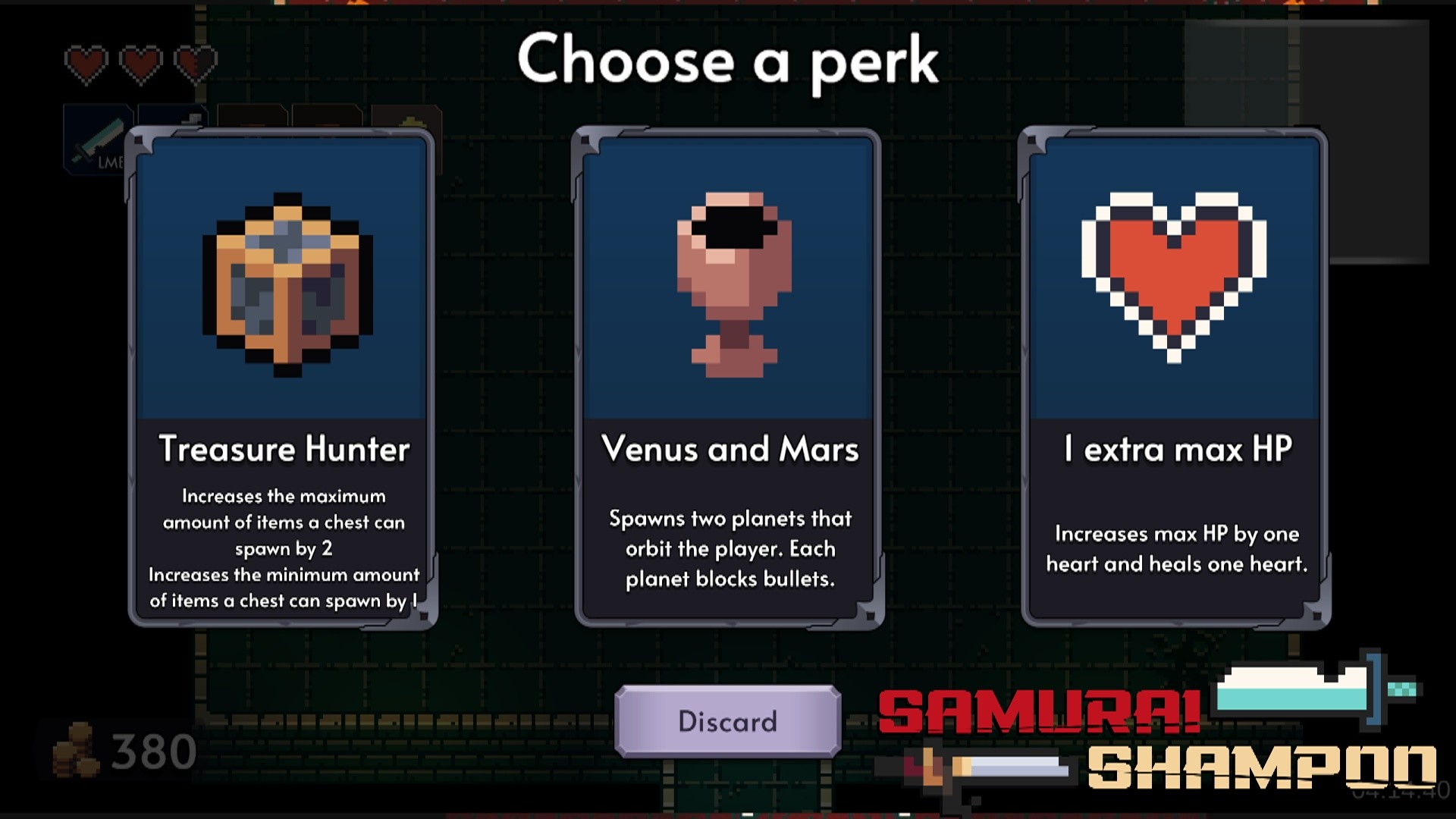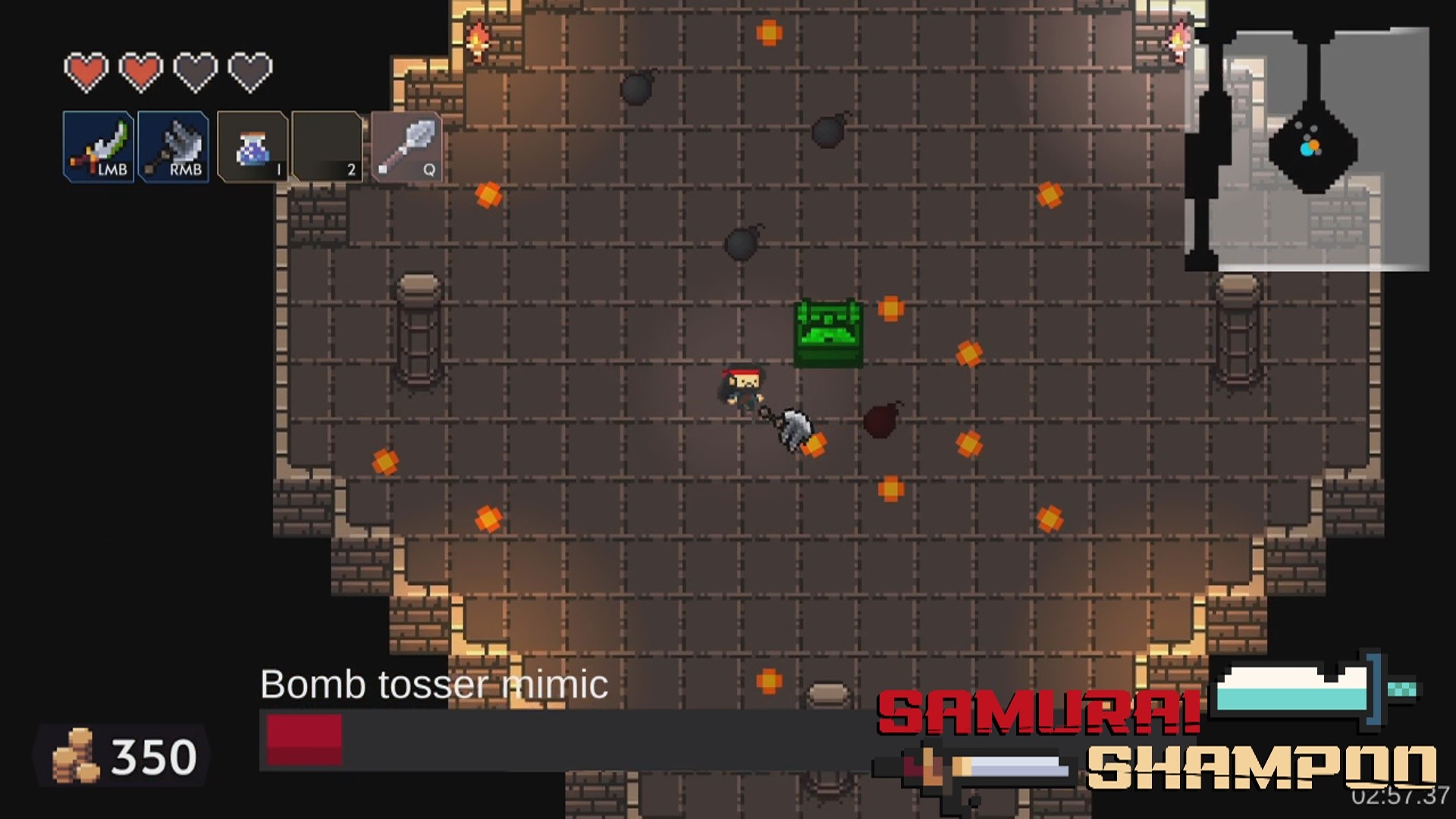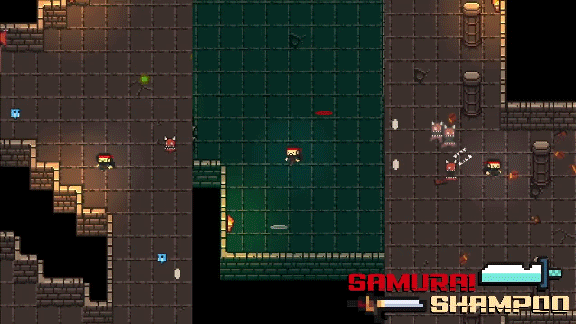
Perks
"Your shampoo has been stolen!, and you've been thrown in a dungeon. Will you be able to reach the end and reclaim your shampoo?"
A melee-focused roguelike about reclaiming your stolen shampoo, dive into a procedurally generated adventure as you hack and slash your way through a dungeon of sinister foes; Stopping at nothing, in hopes of one day finding what is truly yours.
This game finished as the best Entertainment game at Winnovation & runners-up in the Games category. The game was polished and released on Steam after the university course. Ongoing support was provided for several months post-release, ensuring a high-quality gaming experience.


Perks

Gameplay Screenshot

Steam Reviews
Team Size: 6
Year: 2021
Project Form: University Assignment
Project Length: 8 weeks
Engine: Unity
Source Control: GitHub
Responsibilities: Programming, Technical Design
The project was divided among a team of six developers. As the team consisted of members inexperienced with Unity, I had the opportunity to lead and guide them in adopting Unity's best practices and standards. This project provided an excellent chance for me to refine my management skills and exercise my design capabilities. Below are some of my main contributions:

During early playtesting, we encountered a recurring issue where playtesters would stumble upon chests or shops filled with items they had no use for, given their already superior weapons or setups. These power-up stages were intended to be exciting and rewarding for players, so receiving nothing from them was disappointing.
To address this concern, I devised a pseudo-random system that tailors its rewards, shops, and drops to align with the player's specific needs. For instance, if a player's health was critically low, they would find more health-related items in shops and chests. Conversely, if they lacked a weapon upgrade or a specific item, those would appear more frequently. This would create a more engaging gameplay loop as the player would know they will get rewarded for their progress.
Initially, we worried about the potential impact on game balance. However, after evaluating the results, we found that this adjustment led to a significantly more balanced and enjoyable experience. Anticipating these rewarding moments consistently enhanced the gameplay loop, making it more fulfilling and encouraging replayability.
